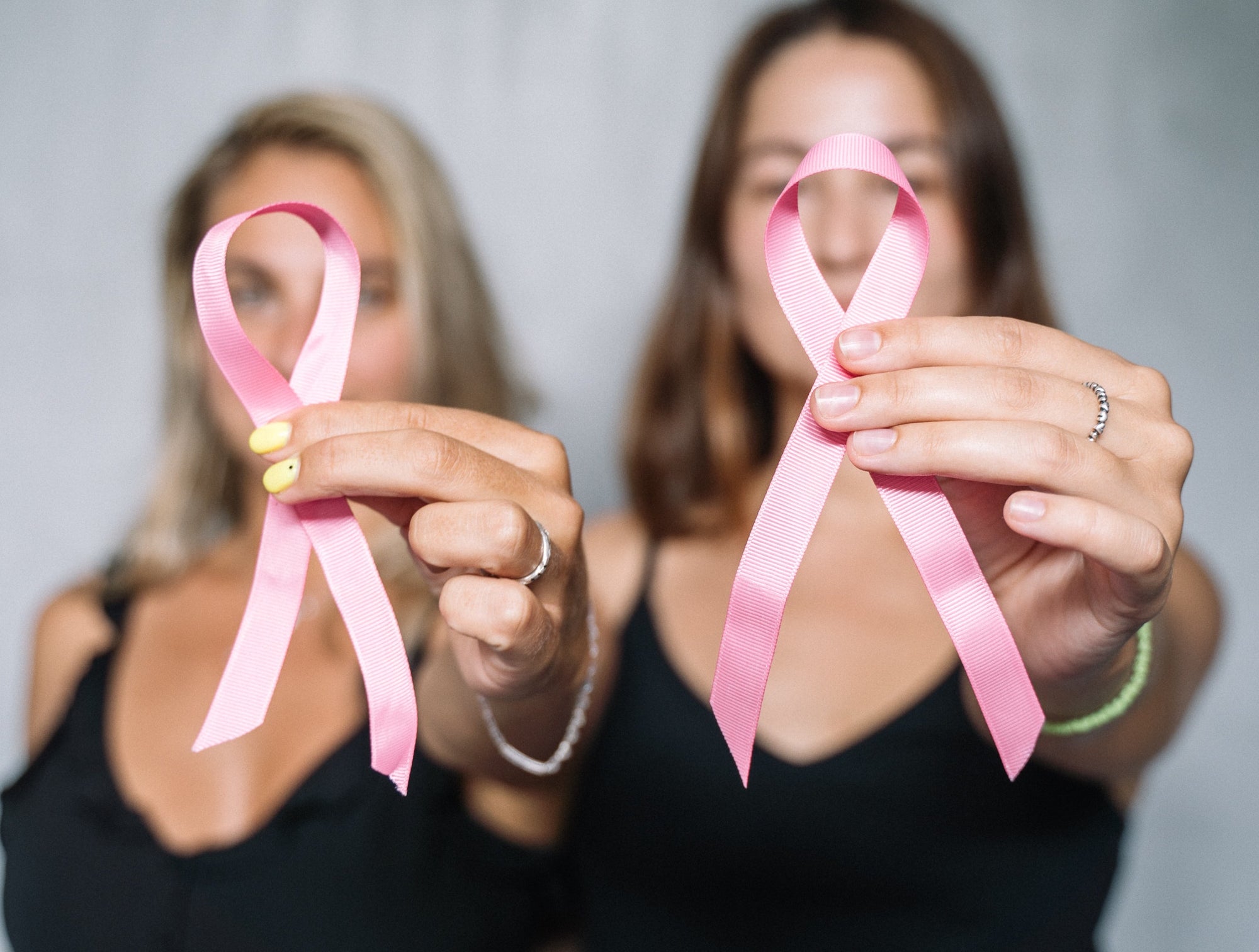

· By Keryce Henry
Here's What Medical Experts Are Saying About Fiber and Reduced Breast Cancer Risk
Breast Cancer Awareness Month is an important time for us here at Bellway. Like many of you, we’re taking extra time this month to celebrate survivors (and thrivers!) of breast cancer, while remembering those whose journeys have come to a close.
But we have a unique opportunity to support people affected by breast cancer all year long. We started Bellway to provide organic, chemical-free, clean fiber. Since then, we’ve learned so much more about this superfood. Sure, it does wonders for your gut health, but the benefits don’t stop there. It can help prevent and/or heal a long list of issues and illnesses, including constipation, IBS, diverticulitis, ulcerative colitis, and—according to some studies—breast cancer.
These studies are ongoing, with more and more experts connecting increased fiber intake to a reduced risk of breast cancer. Below, see what nine of these experts have to say about the benefits of fiber for reducing the risk of breast cancer.
Thinking of incorporating Bellway fiber into your diet to help against breast cancer? As with all supplements, double check with your doctor to make sure that it’s right for you. Buy Bellway here once you get the OK.
For every 10 grams of fiber consumed daily—slightly less than a cup of beans—the risk of breast cancer was 5 percent lower.
-The American Institute for Cancer Research
The American Institute for Cancer Research, which is supported by the World Cancer Research Fund, reports that “women who consumed the highest amounts of fiber had a 7 percent lower risk of breast cancer.” It also showed that, “for every 10 grams of fiber consumed daily—slightly less than a cup of beans—the risk of breast cancer was 5 percent lower. Consuming 20 grams of fiber daily would mean a 10 percent lower risk, and so on.”
Our findings provide research evidence supporting the American Cancer Society dietary guidelines, emphasizing the importance of a diet rich in fiber, including fruits, vegetables, and whole grains.
-Dr. Maryam S. Farvid, Ph. D., ACS Journal
This review published by the American Cancer Society supports the organization’s promotion of a fiber-rich diet. (See the rest of ACS’ dietary guidelines here.)
Consuming a diet high in fiber was linked with a reduced incidence of breast cancer in an analysis of all relevant prospective studies.
-Science News
Science News, published by research news resource Science Daily, supports the ACS Journal review, noting the link between high fiber intake and reduced risk of breast cancer specifically.
Fiber helps decrease insulin and other growth factors circulating in the blood and also lowers estrogen levels; all these factors can drive breast cancer development.
-CancerHealth.com
A report by CancerHealth.com based on the ACS Journal review indicates that the effectiveness of high-fiber diets in reducing breast cancer risk could be due to the ways that fiber affects what circulates in our bloodstreams.
It also notes that “high-fiber diets have been found to reduce the risk not only for breast cancer but also colorectal, lung and liver cancer.”
Fiber increases frequency of bowel movements (bowel motility), which in turn reduces breast cancer risk by increasing estrogen excretion. Circulating estrogen levels are an established risk factor for breast cancer.
–Food for Breast Cancer
Food for Breast Cancer, which reports on scientific studies and breast cancer diets, supports the idea that fiber can combat breast cancer by helping to excrete estrogen. It notes other ways that researchers explain how a high-fiber diet can reduce breast cancer risk, such as by reducing cholesterol, improving blood sugar control, and maintaining weight.
Dietary fiber intake may decrease the risk of both premenopausal and postmenopausal breast cancers.
-Cancer Network
In a report of the findings from an analysis of various studies, Cancer Network (which publishes the Oncology journal) says that high-fiber diets benefit both premenopausal and postmenopausal variations of breast cancer. It also notes that, “A high intake of fiber was [also] found to be inversely, but not significantly, associated with ER+/PR+ and ER-/PR- breast cancers.”
Soluble fiber from cereals, fruit, legumes, and vegetables showed the strongest association with reduced risk [of breast cancer].
-Physicians Committee for Responsible Medicine
The Physicians Committee for Responsible Medicine reports the specific type of fiber that is mostly associated with reduced risk of premenopausal and postmenopausal breast cancer. This is based on findings by the ACS Journal.
It also notes possible mechanisms that allow fiber to reduce the risk of breast cancer, including “increased levels of sex hormone-binding globulin and improved composition of intestinal microbiota.”
Women who consumed high-fiber diets saw an 8 percent reduced risk of developing breast cancer.
-The Beet
Included among the many benefits of fiber reported in this article by The Beet is the impressive rate at which high-fiber diets can reduce the risk of breast cancer.
Fruits and vegetables are just as effective at preventing breast cancer as beans and whole grains.
-Healthline
This Healthline article takes a critical look at a study that reported that bean fiber could be more effective than fruits or vegetables in reducing breast cancer risk because it contains more fiber. The conclusion: “While fiber may offer protection against cancer, to say a food is better than another because it has more fiber isn’t the case,” say two nutrition experts quoted in the article.
